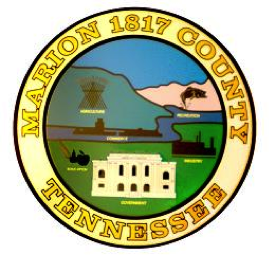 LACIE SILVA – Editor
LACIE SILVA – Editor
The final decision on the County Powers Act (CPA) versus the Tinsley Sand Plant was made on November 27, at the County Commissioners meeting.
In a vote of 11 (to deny) to, 2 (to approve), a PowerPoint presentation was rejected for the agenda item. The individuals who endorsed the decision to deny the PowerPoint included Commissioners Atkinson, Blansett, Campbell, Cantrell, Hargis, Morrison, Nunley, Schaffer, Thompson, VanAllman, and Chairwoman Mason. Their reservations were rooted in concerns about insufficient notice regarding the presentation and apprehensions about the visibility of the slides due to the fixed equipment’s placement. On the contrary, Brandt and Franklin were in favor of allowing the presentation despite the majority voting against it.
Jack Champion was the first speaker to discuss the CPA. He highlighted a statement from the Tinsley company pledging to donate 50 cents per ton of sand extracted for the initial three years, with an estimated value ranging from $200,000 to $250,000. He emphasized that these funds should be directed towards Marion County Parks. Champion also claimed that Tinsley was reportedly stating they will pay around $400,000 in property taxes and sales taxes to Marion County. “Are you all looking at the dollar signs down here or are you looking to represent your people? Which one?” Champion asked, directly confronting the commissioner board in his final statements.
Paige Schneider, a resident of Jump Off since 2007 and retired teacher, expressed her perspective on the common objection that opting into the CPA might constitute government overreach and interfere with property rights. She questioned this notion, emphasizing that the CPA provides the county government with the authority to protect the property rights of landowners. Schneider argued that such regulations are essential to safeguard citizens’ health, safety, and property. She drew parallels with existing regulations in areas like food safety, electricity, and water quality, highlighting the need for rules to ensure collective well-being. In her view, the CPA empowers elected officials to regulate businesses and industries that may pose a nuisance or threat to public health and safety.
Gary Minor, initially listed on the agenda, yielded his time to Cliff Huffman, a resident on the plateau concerned about the impact of sand mining on water resources. Huffman, whose water supply comes from the Sewanee Utility District with Lake O’Donnell as the primary reservoir, highlighted the proximity of the proposed sand plant to crucial water sources, including Lake Jackson and wells adjacent to the plant site. He emphasized the threat posed by quarry blasting to these wells and the high cost residents would incur to connect to city water if their wells were compromised. Huffman raised questions about the disposal of contaminated water generated by wet sand mining, expressing concerns about Jump-Off Creek, which flows through the quarry property, eventually reaching Battle Creek and Guntersville Lake. Notably, both bodies of water are EPA-designated Exceptional Tennessee Waters and Outstanding National Resource Waters due to their exceptional biological diversity.
Doug Cameron, a resident of the mountain for 75 years, 33 of them in the Jump-Off community, expressed his concerns, particularly as the Assistant Chief of the Sewanee Volunteer Fire Department. He highlighted the alarming frequency of serious and fatal accidents on Highway 156, emphasizing its inadequacy for the current traffic. Cameron described the road’s narrowness, absence of shoulders, and challenging curves, attributing numerous accidents to these factors. He argued that the proposed sand mine, with 100 heavy trucks a day, would exacerbate road safety issues and contribute to further deterioration. Cameron urged the board to consider the strain on emergency services and suggested allocating resources for an extrication truck at the Jump Off Fire Hall if the CPA were to be denied. He emphasized the community’s choice for a tranquil life in Jump Off, expressing concerns about potential disruptions from the mining activity.
E.M. Turner Chitty, who returned to her hometown after 35 years away, addressed her concerns about Tinsley’s proposal. While acknowledging the importance of the aggregates industry, she pointed out inaccuracies in Tinsley’s information packet. Chitty emphasized that the promise of 25 well-paying jobs was not a guarantee and questioned the adequacy of the 50 cents per ton compensation compared to competitors receiving $50 per ton. She also challenged the notion of site remediation, citing National Geographic and asserting that once the life is shaved off a place, true remediation becomes impossible. Chitty clarified that the community is not anti-industry but seeks responsible and accurate commitments.
Brian Willis expressed concerns about the proposed sand mine’s blasting schedule, emphasizing potential harm to individuals like himself who have experienced trauma as a 21 year retired army sergeant. He asked the veterans in the room to all stand and the audience cheered. Willis suggested a significant increase in penalties for blasting offenses, proposing $200,000 for the first offense and $2 million for the second. His request aimed to address the potential disruptions and negative impact on the well-being of local residents. Willis, in advocating for stricter consequences, yielded the remainder of his time to the next speaker.
Maureen Handler, a resident of Jump-Off for over 20 years and a seasoned civil engineer finished the CPA advocate speeches. With her expertise in environmental and civil engineering, Handler highlighted the potential health risks associated with silica exposure, emphasizing the recent reduction in OSHA’s allowable limits. She stressed the high silica content in the Cumberland Plateau’s upper sandstone and discussed the EPA’s strict residential exposure standards. Additionally, Handler expressed worries about the condition of Stagecoach Road, the primary route to the proposed quarry, citing weight limit violations and a previous collapse that led to significant road closure. She underscored the ecological uniqueness of the Cumberland Plateau, home to thousands of caves and distinctive flora and fauna, urging careful consideration of the environmental impact.
Overall citizen concerns and advocations were cut off as the majority of the speakers ran out of time. The Tinsley representatives were allowed the same amount of uninterrupted time to advocate for their company.
Christopher Hopkins spoke first for Tinsley, addressing concerns regarding the impact on roads and emphasized adherence to state standards. He highlighted that Route 156, a state road, requires a more durable stone, and their trucks operate well within the specified weight limits. Hopkins explained that sandstone mining, being a wet process, minimizes dust generation, and water trucks on-site further control dust on inner roads. He reassured that well water is not adversely affected when mining is conducted correctly. To address worries about potential impacts, Hopkins mentioned the presence of seismographs at all corners of the quarry, with pre-opening inspections offered to nearby residents. He also advised, “If a neighbor wants a seismograph planted in their lawn for one of our eight blasts a year, we’ll gladly do that.” He emphasized their commitment to transparency by reporting blast results promptly to the state fire marshal for compliance verification.
Although not on the agenda to speak, Chairwoman Mason allowed Terry Sossong to speak as a Tinsley representative. Sossong, quarry owner and manager, asserted that blasting is a controllable and scheduled process that doesn’t impact the water system. Drawing on his extensive experience managing quarries across the country, he emphasized the simplicity of the mining process and noted successful operations near residential areas without issues. Sossong questioned why a landowner couldn’t use their property for mining if done responsibly, pointing out the manageability of concerns raised. He shared an example of notifying nearby residents before blasting in his operations, highlighting that such issues are easily addressed. Sossong cautioned against restricting land use for specific items, foreseeing a potential slippery slope where objections could arise for various reasons.
During the resolution and vote, Commissioner Brandt initiated a motion to opt into the act, seconded by Commissioner Franklin. The roll call resulted in 9 votes against and 4 in favor. Those who voted against included Commissioners Atkins, Blansett, Campbell, Cantrell, Hargis, Morrison, Nunley, and Thompson, with Chairwoman Mason also voting no. On the affirmative side were Commissioners Brandt, Franklin, Schaffer, and VanAllman.





